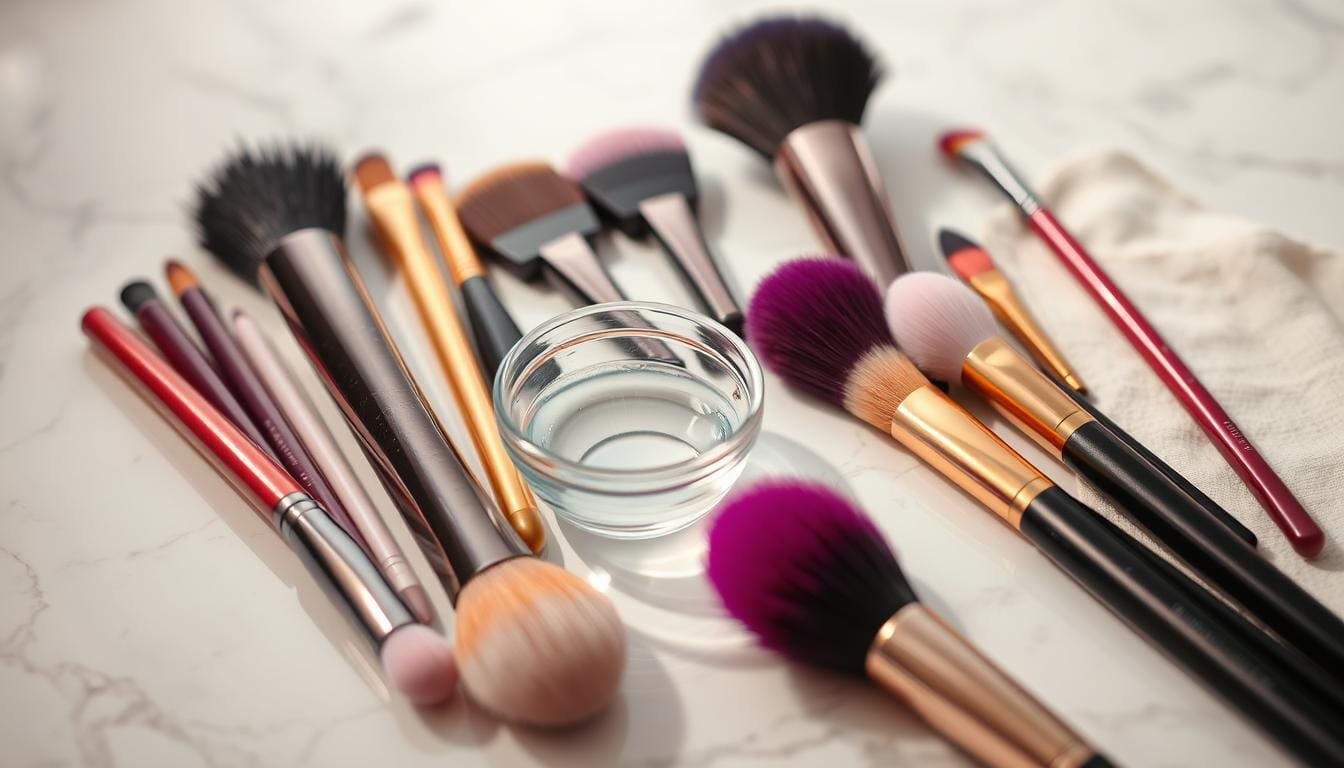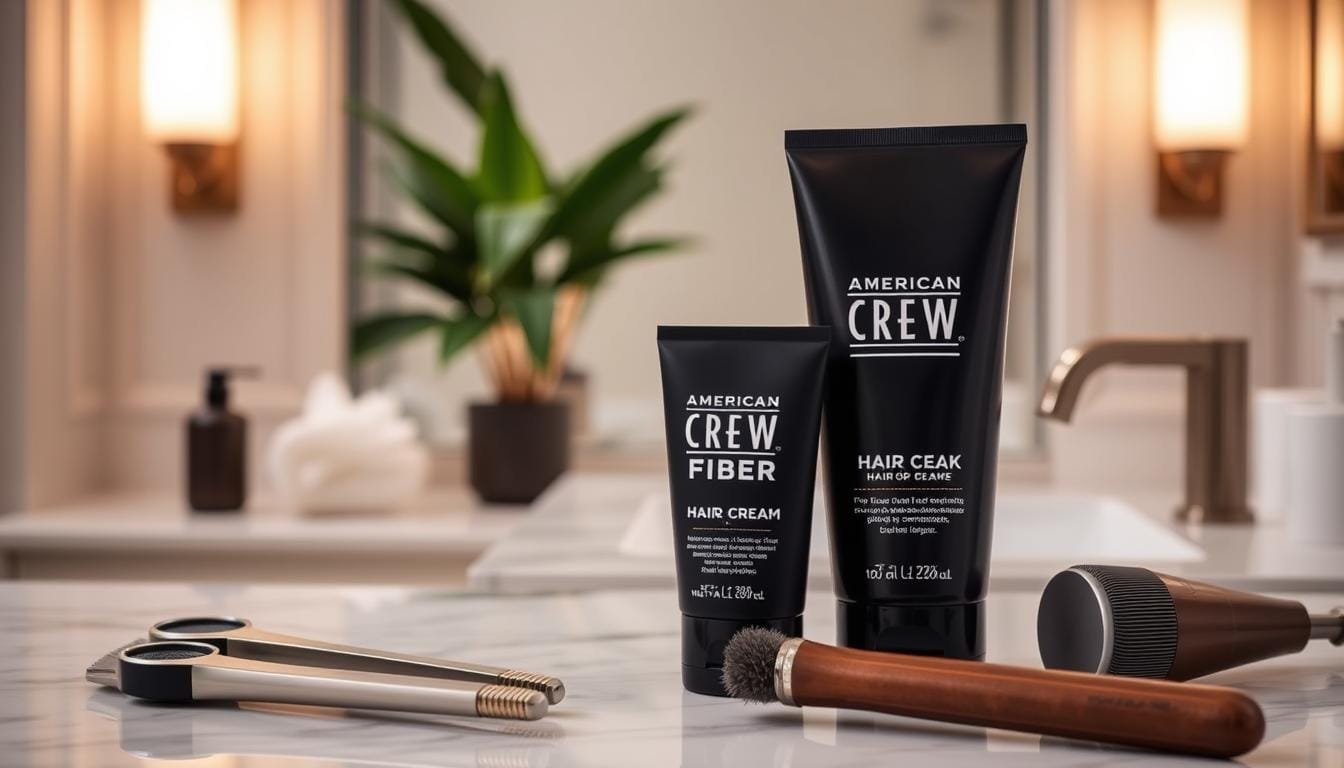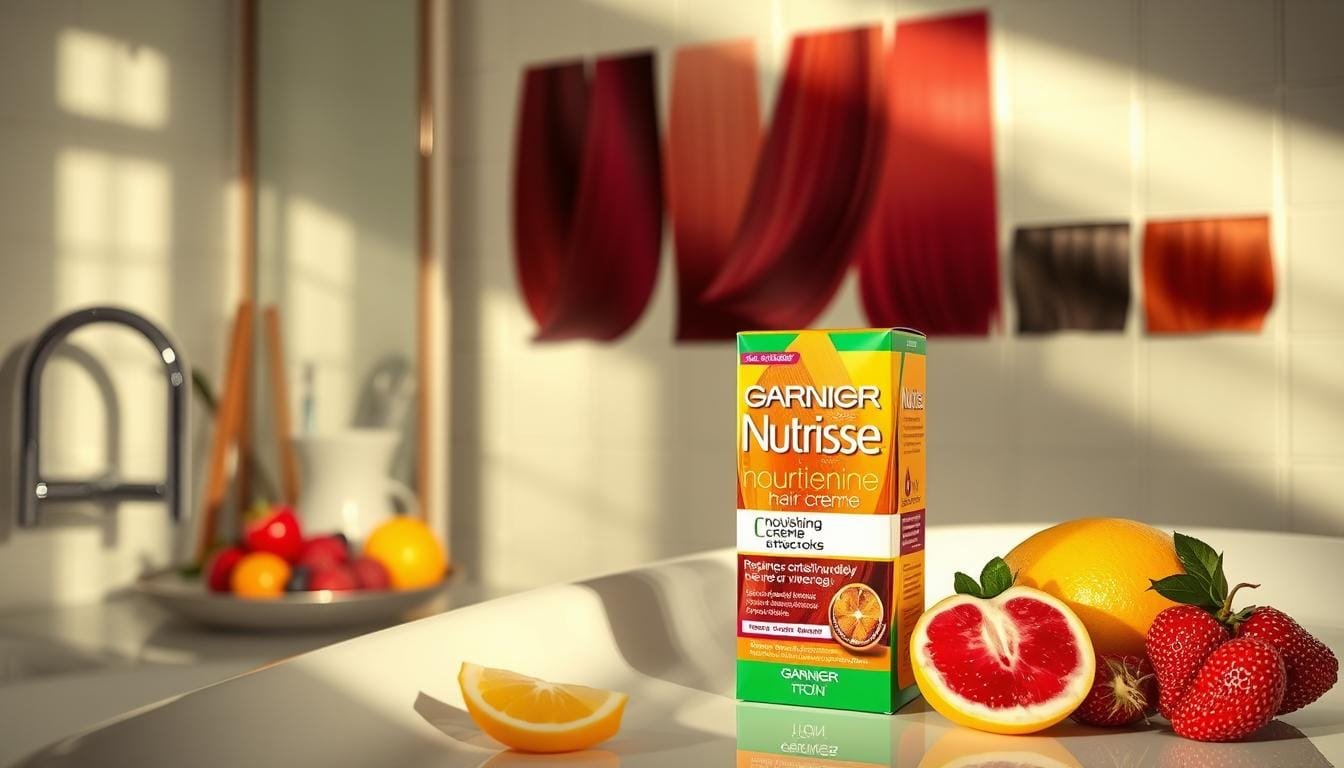Did you know you should clean your makeup brushes after every use? Not doing so can lead to skin problems like irritation and breakouts. It’s key to keep your brushes clean to get a smooth makeup look and make them last longer.
Key Takeaways
- Cleaning makeup brushes regularly is essential for preventing bacteria growth and maintaining skin health.
- Liquid and cream product brushes should be cleaned after each use, while powder brushes need a 1-2 times weekly wash.
- Investing in the right brush cleaning products, such as a gentle shampoo or dedicated brush cleaner, can help extend the life of your brushes.
- Proper drying and storage are crucial for maintaining brush shape and preventing damage.
- Replacing worn-out brushes that shed bristles or lose their shape is important for achieving the best makeup results.
The Importance of Cleaning Makeup Brushes
Cleaning your makeup brushes is key for your skin’s health and your tools’ longevity. If you don’t clean regularly, bacteria, dead skin, and old makeup can build up. This can cause acne and skin irritation. Not washing makeup brushes often lets bacteria, like staph and E. coli, grow. This can cause infections.
Prevent Bacteria Buildup
A recent survey found that most women clean their makeup brushes once per month or less. Worryingly, over 20% admit to never cleaning them. This permits dangerous microbes to accumulate and thrive. Such bacteria can cause multiple health issues stemming from infections.
Enhance Makeup Application
Dirty makeup brushes hurt your makeup and the tools. Caked-on grime changes brushes. It affects their shape and ability to pick up and dispense pigments. This translates to uneven, poor coverage and an unblended overall appearance. Proper grooming is essential for optimal makeup application.
Extend Brush Life
Regular cleaning also extends the lifespan of high-quality makeup brushes. It removes deposits that deteriorate bristle integrity if left to build over time. This routine keeps brushes performing well and looking good for longer.
Establishing frequent brush hygiene habits protects both complexion health and valuable beauty possessions. It leads to better makeup results while lowering risk of skin troubles. Plus, it means pricey tools can be enjoyed for extended durations.

Best Products for Cleaning Makeup Brushes
Cleaning makeup brushes is essential. It ensures the best results and healthy skin. A variety of competent products exist for scrubbing brushes clean. Gentle soaps, specialized cleansers, or homemade concoctions may be applied.
Mild Lathering Shampoo
A mild lathering shampoo serves excellently to clean brushes. Tom and Lottie advise employing an odorless, delicate soap. Options like Olive Oil Soap or Baby Shampoo work well. They lift grime and buildup without harming bristles.
Dedicated Brush Cleaning Formulations
For deeper scrubbing, specialized brush cleansers prove useful. Beau and Gucci recommend the Solid Blendercleanser and Organics Natural Brush Cleanser. They are both for cleaning brushes.
Do-It-Yourself Cleansing Solutions
Cost-conscious options involve homemade solutions. Lottie and Mario suggest Dawn dish soap. Brigitte recommends spirit-based cleansers like Japonesque or Cinema Secrets, sanitizing thoroughly.
Cleansing Tools and Amenities
Tools and amenities streamline cleaning. The Sigma Spa Glove and Vera Mona Duo scrub brushes efficiently without labor.
Disinfecting Brushes
Essential remains disinfecting brushes, destroying bacteria. Hung and Brigitte advise using 70% isopropyl alcohol or sanitizers. They keep brushes clean and safe.
Adhering to these practices and products retains brushes in pristine, flawless-application-enabling condition.
Step-by-Step Cleaning Directions
Maintaining spotless brushes ensures polished makeup and wholesome skin. Follow this process to keep brushes prim.
Pre-Soaking Bristles
Initially saturate bristles with tepid water, retaining handles and joints dry. This readies bristles without harm.
Lathering and Massaging
Apply cleanser to bristles, kneading it into fibers, removing cosmetics, oils and residues.
Rinsing and Wringing
Thoroughly rinse until water runs clear, signifying complete dirt removal. Gingerly squeeze excess water without damaging.
Air Drying and Reforming
Allow air drying upright or laid, restoring original shapes. This preserves brushes’ performance.
This cleaning method keeps brushes hygienic and safe. It ensures great results.

Regularly cleaning makeup brushes is crucial for maintaining skin health and achieving the best makeup application. It’s a simple step that can make a big difference in the longevity and performance of your brushes. Troy Surratt, Renowned Makeup Artist
| Brush Type | Recommended Cleaning Frequency |
|---|---|
| Brushes used for wet products or liquid makeup | Clean at least once a week |
| Brushes used around the eyes | Clean every two weeks |
| Brushes for dry makeup products | Clean once a month |
| Makeup sponges | Clean twice a week or daily, depending on usage |
Remember, cleaning your makeup brushes and sponges right can make them last longer. It also helps your makeup look better and keeps your skin clear.
Maintaining Makeup Applicators
It’s vital to keep tools like sponges and brushes pristine. This avoids impurities and ensures flawless makeup application. Appliances like the sought-after Beautyblender must be cleaned. Do this regularly, and preferably soon after each use. It will prevent a buildup of dead skin cells, sebum, and pigments. Proper maintenance fosters hygiene and protects the skin.
To purify makeup sponges, soak them in running water. Then, use a gentle or specialized brush cleanser. Massage the sponge while rinsing to remove soilage. Be sure the applicator is completely dried prior to the next application. Regular maintenance and tool replacement are vital for sanitation and a great look. Dermatologists suggest replacing sponges every 90 to 180 days. This will prevent microbes and protect skin health.
Cosmetics sponges must be washed at least once a week,” says Dr. Alison Ehrlich, a Board-certified dermatologist. “This prevents bacteria and clogged pores.” Using simple rules to clean and replace makeup sponges ensures hygiene and beauty. Confidence and radiance will result..

Storage Practices for Brushes
Judicious storage bolsters brush durability, sanitation, and functional lifespan. Basic practices keep brushes in top condition. They are always ready for perfect makeup application. Correct storage forestalls deterioration.
Upright placement in acrylic organizers or cups is best. It keeps bristles from deforming. Experts recommend cleaning brushes biweekly to combat pathogens and prolong serviceability.
For travel, brush rolls or compact magnetic sets conveniently secure and arrange brushes. Quart-sized bags keep brushes and other items safe from spills in luggage. They also keep them organized.
At home, creativity flourishes with repurposed containers. Candleholders, antique jars, and vases showcase brushes beautifully. Personalized touches like crystals or lace decorate storage. Magnetic strips along mirrors capitalize on space.
No matter the method, it is crucial to protect brushes from dust. A lidded container or dust-free spot will do. Protected storage perpetuates pristine brushes, at the ready for unparalleled looks.
Signs Brushes Require Replacement
Regular maintenance notwithstanding, brushes inevitably necessitate replacement. Distinguishing these signs is pivotal for seamless application and hygiene. Consider the following telltales.
Excess shedding intimates weakening adhesive, resulting in patchiness and irritation.
Loss of restoring shape impedes smooth dispersion, especially for foundation and eyeshadow brushes.
- Frayed or stiff bristles make blending tough, leading to uneven makeup.
- Even with cleaning, brushes can gather grime and makeup, causing stains. Deep stains mean it’s time for new brushes.
- Constant skin irritation or breakouts after cleaning suggest bacteria and dead skin in the brushes. It’s time for a change.
Choosing high-quality brushes means better makeup and longer life. They’re gentler on the skin, pick up product well, and blend smoothly for a flawless look.
Upgrading to higher-quality brushes can enhance the makeup application process.
If you see these signs, it’s time for new brushes. Your skin and makeup routine will be better off.
Cleaning Makeup Brushes
Keeping your makeup brushes clean is key for a flawless look and healthy skin. But how often should you clean your makeup brushes, and what’s the best way to disinfect makeup brushes? Let’s explore the details.
How often you clean your brushes depends on the makeup you use. Brushes with liquid makeup need daily cleaning to stop bacteria from growing. Brushes for powder makeup can be cleaned 1-2 times a week since they’re less likely to harbor bacteria.
When cleaning makeup brushes, use a gentle, fragrance-free cleanser made for brushes. Stay away from harsh chemicals and choose a brush cleaner or mild shampoo. The Cinema Secrets Brush Cleaner is a top pick because it’s strong and lasts long.
- Wet the bristles with warm water.
- Apply a small amount of brush cleaner or shampoo and gently massage the bristles.
- Rinse the bristles well until the water is clear.
- Squeeze out the water and reshape the brushes.
- Let the brushes air dry before using them again.
For everyday care, use microfiber cloths or baby wipes to remove extra product. This keeps your brushes in great shape.
Investing in high-quality makeup brushes can pay off in the long run, as they can last for years with proper care.
By following these easy steps and making time to clean your makeup brushes, you’ll make your brushes last longer. You’ll also keep your makeup looking flawless and bacteria-free. Happy brushing!
Quick Cleans for Busy Bees
Finding time for a deep makeup brush cleaning can be tough in our busy lives. But don’t worry, there are quick ways to keep your brushes fresh. These methods are perfect for a fast refresh between deeper cleanings.
Using brush cleaning sprays is a great option. These sprays are made to quickly clean makeup, oil, and germs from your brushes. Just spray the cleaner on, rub it in gently, and then wipe with a cloth or paper towel.
Micellar water is another quick solution. It’s a soft, water-based cleaner that removes dirt without rinsing. Soak a cotton pad with micellar water and gently go over the brush bristles to clean them.
- Brush cleaning sprays and micellar water are ideal for a quick brush clean when you’re short on time.
- These quick fixes won’t replace a full how to spot clean makeup brushes session. But they help keep your brushes clean and prevent buildup until you can do a full clean.
While these quick cleaning tips are great for busy days, remember to set aside time for a full brush cleaning regularly. This keeps your brushes in great shape and ensures your makeup looks perfect.
DIY Cleaning Solutions
For a budget-friendly way to clean your makeup brushes, try DIY solutions with common household items. Baby shampoo is a gentle option that removes makeup well without harming the bristles. Dish soap can work too, but be careful as some formulas can damage brushes if not rinsed well.
When using DIY cleaners, use a little and rinse the brushes well to avoid residue or stickiness. Still, dedicated brush cleansers are the safest and most effective way to keep your brushes in top shape.
A popular DIY makeup brush cleaner mix is 1/4 cup water, 2 tablespoons of witch hazel, and a generous squirt of castile soap. Witch hazel removes makeup residue, and castile soap loosens dirt and oils from the bristles. You can find these ingredients online or in stores, usually in the body or pharmacy section.
Cleaning and drying your makeup brushes regularly can make them last longer. But, if they start shedding a lot, it’s time for new ones. Wash your brushes once a week or twice a month if you use them a lot, and more often if you have breakouts.
| Cleaning Frequency | Recommendation |
|---|---|
| Weekly | Brushes used for foundation, powder, and concealer |
| Between Each Use | Brushes for blending eyeshadows |
| Daily | Makeup sponges and beauty blenders |
Storing your makeup brushes in cool, dry places away from the bathroom helps prevent bacterial growth and makes them last longer.
Regular cleaning and drying of makeup brushes can significantly increase their shelf life.
Deep Cleaning Hacks
Keeping your makeup brushes clean is crucial. Sometimes, they need a deep clean to get rid of tough buildup. Here are some hacks to help you do just that.
Using a silicone brush cleaning mat is a great way to deep clean. The mat’s texture helps the cleanser get deep into the bristles. Just wet the mat, add some brush cleaner, and swirl your brushes to remove dirt.
For a deeper clean, try a clarifying shampoo once a month. These shampoos go deep into the bristles to remove dirt and refresh the hairs. After washing, your brushes will feel soft and be ready for makeup.
- Use a silicone brush cleaning mat to deep clean stubborn product buildup
- Treat brushes to a clarifying shampoo once a month for a thorough cleanse
- Properly drying and reshaping brushes is essential after deep cleaning
Adding these deep-cleaning steps to your routine keeps your brushes in top shape. With a little extra care, your makeup will apply smoothly and look flawless every time.
Keeping your makeup brushes clean is essential for maintaining healthy skin and achieving a flawless makeup look. Regular deep cleaning helps remove stubborn product buildup and revitalize the bristles.
Conclusion
Keeping your makeup brushes clean is key to healthy skin and a professional makeup look. By cleaning, storing, and replacing your brushes right, you make them last longer. This ensures your makeup always looks great. You can use special cleaners, make your own, or try deep-cleaning hacks to keep up with a good routine.
Cleaning your brushes often stops bacteria from building up and keeps your skin safe. Dirty brushes make it hard to get the look you want, leading to poor blending and application. Also, dirty brushes can spoil your makeup products and be bad for your skin.
Using the right products like gentle shampoos and special brush cleaners keeps your brushes in top shape. Also, storing them right and replacing old ones helps them last longer. By focusing on keeping your brushes clean, you make your makeup routine better and protect your skin.
FAQ
What should you clean makeup brushes with?
You can clean makeup brushes with gentle shampoos, brush cleaners, or DIY solutions. Options include dish soap and olive oil, vinegar, or castile soap. Tools like the Sigma Spa 2X Brush Cleaning Glove and Vera Mona Color Switch Duo are also good choices.
How often should you clean your makeup brushes?
Experts suggest cleaning brushes for liquid and wet products after each use. Powder brushes should be cleaned 1-2 times a week.
Why is it important to clean makeup brushes regularly?
Cleaning your makeup brushes often stops bacteria from building up. It improves how makeup looks on your face and makes your brushes last longer. Clean brushes help you get a flawless look and keep your skin healthy.
What is the proper way to disinfect makeup brushes?
Use 70% isopropyl alcohol to disinfect makeup brushes. This kills bacteria and prevents breakouts.
Can you use dish soap to clean makeup brushes?
Yes, you can use dish soap for cleaning makeup brushes. But, be careful not to damage the bristles by not rinsing well.
What is the best way to store makeup brushes?
Good storage options include makeup organizers, brush holders with lids, rotating organizers, and magnetic holders. Keeping brushes upright helps keep them in shape and prevents contamination.
When should you replace your makeup brushes?
Replace your makeup brushes when they show signs of wear, like frayed or shedding bristles. High-quality brushes last longer than others.
Can you use Zote soap to clean makeup brushes?
Yes, Zote soap is a good choice for cleaning makeup brushes. It’s gentle and removes makeup and oil without harming the bristles.



